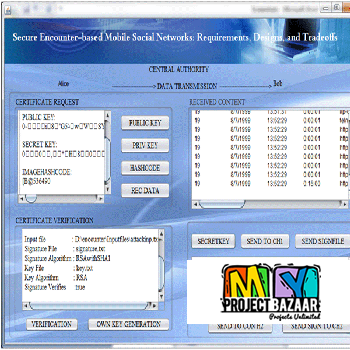
Reliability Oriented Single path Routing Protocols in Wireless Sensor Networks
Product Description
Abstract—Wireless sensor networks (WSNs) bring significant advantages over traditional communications in today’s applications, such as environmental monitoring, homeland security, and health care. However, harsh and complex environments pose great challenges in the reliability of WSN communications. To achieve reliable wireless communications within WSNs, it is essential to have a reliable routing protocol and to have a means to evaluate the reliability performance of different routing protocols. In this paper, we first model the reliability of two different types of sensor nodes: 1) energy harvesting sensor nodes and 2) battery-powered sensor nodes. We then present wireless link reliability models for each type of sensor nodes, where effects of different parameters, such as battery life-time, shadowing, noise, and location uncertainty, < Final Year Projects > are considered for analyzing the wireless link reliability. Based on the sensor node and wireless link reliability models, we compare the performance of different routing algorithms in terms of end-to-end path reliability and number of hops. A dynamic routing approach is then proposed to achieve the most reliable end-to-end path in WSNs. Furthermore, to facilitate a fair and comprehensive comparison among different routing algorithms, a cost function approach that integrates the end-to-end path reliability and number of hops is proposed, providing an indicator of quality of service of applications running on WSNs.
Including Packages
Our Specialization
Support Service
Statistical Report

satisfied customers
3,589
Freelance projects
983
sales on Site
11,021
developers
175+Additional Information
| Domains | |
|---|---|
| Programming Language |















